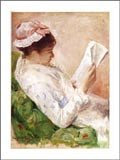 On Tyranny: Twenty Lessons from the Twentieth Century by Timothy Snyder
On Tyranny: Twenty Lessons from the Twentieth Century by Timothy SnyderMy rating: 5 of 5 stars
"When we repeat the same words and phrases that appear in the daily media, we accept the absence of a larger framework. To have such a framework requires more concepts, and having more concepts requires more reading."
Read this for the concepts, the clarity, the history, the norms and lack of norms, and the brilliant brevity. Read it for the table of contents, which begins with "Do not obey in advance," and ends with "Be as courageous as you can." Just read it. NOW.
View all my reviews














